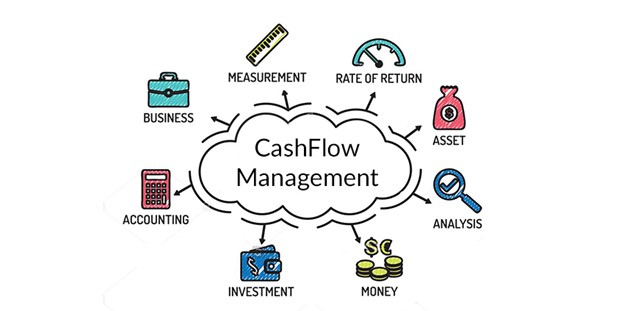For business owners, cash flow issues are often as disconcerting as revenue and profit issues. Slow or diminishing cash flow can have several profound effects on small business. Cash flow is generated when the business sells goods or services for cash or collects payments on accounts from customers.

BUSINESS CREDIT
Building Business Credit while improving Personal Credit will enable the business owner to utilize two profiles. The business will begin to have its own borrowing power. Borrowing power based on Business Performance, not on the business owner.
- 30 Net, 60 Net and 90 Net is a form of cash flow management. Businesses can leverage Trade Credit to complete larger orders without significant upfront cost. Our Business Credit Program helps businesses build up to 25 useful Net Terms trade-lines.
- Business credit cards are another form of cash flow management. Having excellent business credit will give business owners access to lower interest rates, longer revolving terms and higher limits.
EXPERIAN BUSINESS – What lenders see CLICK HERE
D&B PAYDEX – Learn about Paydex Scores CLICK HERE
FICO SBSS – What is a Liquid Credit Score CLICK HERE
DEFINITIONS
Cash Flow Measurement – It relies on cash accounting, which only records revenue or expenses when the money changes hands. A statement of cash flows indicates how and when a company receives money (from sales, investments or financing) and how and when it spends money (operating expenses, capital investments, taxes, interest, etc.). * Need a referral to a good CPA?
Rate of return (ROR) – A rate of return is the net gain or loss on an investment over a specified time period, expressed as a percentage of the investment’s initial cost. Gains on investments are defined as income received plus any capital gains realized on the sale of the investment.
Assets – an asset is any resource owned by the business. Anything tangible or intangible that can be owned or controlled to produce value and that is held by a company to produce positive economic value is an asset.
Business (Sales) – A sale is a transaction between two or more parties in which the buyer receives goods—either tangible or intangible—services, and/or assets in exchange for money or in some cases, other assets paid to a seller. In the financial markets, a sale can also refer to an agreement that a buyer and seller make regarding the price of a security. Regardless of the context, a sale is essentially a contract between the buyer and seller of the particular good or service in question.
Accounting – Business accounting is the systematic recording, analyzing, interpreting and presenting of financial information. Accounting may be done by one person in a small business, or by different teams in large organizations. Accounting is the way a business keeps track of its operations. Accountants analyze the business finances so the owner can make better decisions. This information is organized into reports that show the financial health of a business. Accounting helps business owners meet their compliance obligations. It also helps them make smart decisions with their money.
Investment – Business investment accounting refers usually to accounting for assets that are purchased in the hopes that the asset will either provide income or appreciate in the future.
Money – Cash is also known as money, in physical form. Cash, in a corporate setting, usually includes bank accounts and marketable securities, such as government bonds and banker’s acceptances. Although cash typically refers to money in hand, the term can also be used to indicate money in banking accounts, checks, or any other form of currency that is easily accessible and can be quickly turned into physical cash.
Analysis – An examination of a company’s cash inflows and outflows during a specific period. The analysis begins with a starting balance and generates an ending balance after accounting for all cash receipts and paid expenses during the period. The cash flow analysis is often used for financial reporting purposes.
